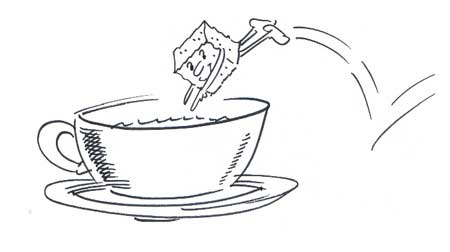|
|
|
Please click on the links below to read our articles. If you are interested in research findings, click here for links to research reports. For links to freefrom food products click here.  Sugars Matter – Margaret Moss explains how. March 2016 BSEM Conference – Sugar.... the Brain, the Microbiome and Cancer – October 2015 What is stevia and what are its health benefits? Article in Medical News Today December 2014 The demand for stevia grows and grows. October 2014 56 names for sugar – are you eating more than you know? October 2014 Artificial sweeteners could hasten the development of glucose intolerance and metabolic disease by changing the composition and function of the gut microbiota. September 2014 Fructose intolerance, including FODMAPS – Dr Janice Joneja September 2014 Sugar, fat, food and addiction: mental health and obesity implications – a public health crisis. FABResearch conference. Notes on the presentations by Michelle Berriedale-Johnson. July 2014 Over view of sugar substitutes from Dr Mercola - What's safe and what is not. October 2013 What's so bad about agave syrup? The arguments. What type of sugar addict are you? Dr Jacob Teitelbaum, author of Beat Sugar Addiciton Now, has along article in the November 2010 Townsend Letter outlining the four types of sugar addiction. Fructose – the good, the bad – and the malabsorbed... Michelle Berriedale-Johnson explains September 2010 Agave syrup worse than High Fructose Corn Syrup. A lengthy article on the Dr Mercola site suggests that far from being the natural sap from the agave leaf, agave syrup is a highly processed, often contaminated product of the starchy bulb of the plant, and is 80% fructose, 30% more than High Fructose Corn Syrup. March 2010 The Honey Trap – Many 'natural' alternatives to sugar bill themselves as low GI and healthy. Catherine Quinn discovers which products genuinely deliver. 2009 Lengthy, telling and scary video on aspartame and its health implications The Alliance for Natural Health has no time for the artificial sweetener, sucralose, especially under its brand name of Splenda. August 2009 Micki Rose's low glycaemic load, gluten-free, dairy-free diet: fed up with continually cobbling together diets for her food sensitive patients, she has finally written a diet plan – Micki Rose 2008 Sweet Sensations: Enter the chocolatey world of Liz Bygrave and discover some interesting desserts and ingredients that can be consumed by people with diabetes and candida, without fear OR guilt! – Cressida Boyd 2008
|
Research Reports
|
|
US Government study finds that 65% of breast milks sampled contained artifical sweeteners. August 2015 Sugar intolerance in Inuit populations linked to specific gene. January 2015 Stevia - side effects and possible allergic cross-reactions with chrysanthemums, marigolds, ragweed or daisies. New Health Guide. December 2014 Artificial sweeteners induce glucose intolerance by altering the gut microbiota. October 2014 Are artificial sweeteners a hidden trigger of Inflammatory Bowel Disease? September 2014 Artificial sweeteners more weight-promoting than sugar. Rats fed the synthetic sweeteners saccharin and aspartame, gained more weight than those given sucrose (table sugar), even at similar total caloric intake levels. October 2012 High fructose corn syrup damages not only the liver but the brain, effecting learning ability and memory.May 2012 How fructose can cause obestiy and pre-diabetic metabolic syndrome. Abstract here. Mouse studies suggest that sugar alone could cause behavioural or mental illnesses. Try Xylitol for ear infections. High fructose consumption can increase the risk of gout. Fake sugar may alter how the body handles real sugar High levels of mercury have been found in popular drinks, breads, cereals, breakfast bars, yogurts and soups containing high-fructose corn syrup Artifical sweeteners which evade sewage treatment may contaminate drinking water While not admitting that there are health problems associated with the aspartame, Coca Cola and PepsiCo are introducing new stevia-sweetened products, so they have something to fall back on if / when the general public find out about the dark side of aspartame. Agave nectar Xylitol – more than just a sweetener New research review on aspartame is accused of bias and using 'junk science' - read the rebuttal here More questions about the safety of aspartame Children and Aspartame Healing properties of natural sugars First Published in Febuary 2007
NB Information on this site is not a substitute for medical advice and no liability can be assumed for its use. |












